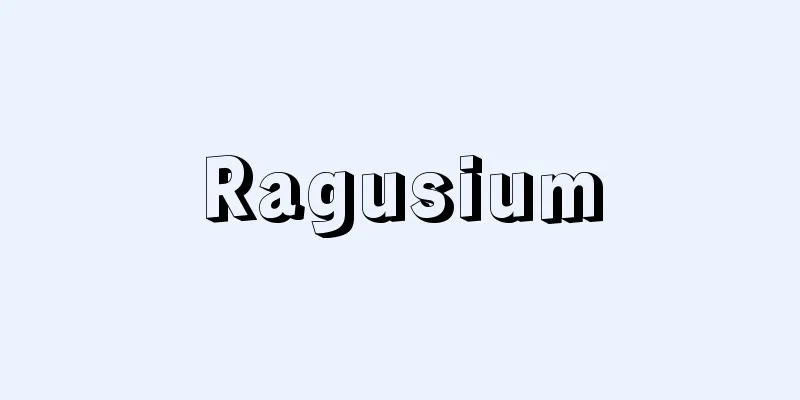Ragusium

|
...Population: 50,000 (1991). The origins of the town date back to the early 7th century, when fugitives from the nearby Roman city, destroyed by the Slavs, settled on what was then a small island south of the Stradun boulevard that now divides the city, and named it Ragusium. The Slavs who settled on the mainland on the opposite bank apparently called their territory "Dubrovnik" after the oak (dubu) forests there. *Some of the terminology explanations that mention "Ragusium" are listed below. Source | Heibonsha World Encyclopedia 2nd Edition | Information |
|
…人口5万(1991)。 町の起源は,7世紀初頭にスラブ人によって破壊された近郊のローマ都市からの逃亡者が,現在市を二分するストラドゥン大通りの南部(当時は小島)へ定着し,ラグシウムRagusiumと名づけたことにさかのぼる。対岸の大陸部に住みついたスラブ人はオーク(ドゥブ)林にちなんで自領を〈ドゥブロブニク〉と称したらしい。… ※「Ragusium」について言及している用語解説の一部を掲載しています。 出典|株式会社平凡社世界大百科事典 第2版について | 情報 |
Recommend
Boris Leonidovich Pasternak
Russian and Soviet poet and novelist. Born in Mos...
Adult - Adult
An individual is an individual that, after ontoge...
Industrial hygiene
In modern society, workers take up a job and parti...
Acupuncture - Acupuncture
A metallic needle or needle-like instrument used f...
Katsuragawa [town] - Keisen
A town in Kaho District, central Fukuoka Prefectur...
Commemorative Festival - Kinensai
A festival or event held to commemorate something....
Sinuiju
A city in the western part of North Pyongan Provi...
Red-spotted monkey
[1] 〘 noun 〙① = orangutan [Natural History Teachin...
Permanent income
…After World War II, the so-called consumption fu...
aldose
...A general term for polyhydric alcohols with al...
Araucaria cunninghamii (English spelling)
… [Makoto Nishida]. … *Some of the terminology th...
Life
Life is a fundamental attribute of all living thi...
Carcharodon angustidens - Carcharodon angustidens
…The modern species of great white sharks live in...
Toyono [Village] - Toyono
A village in Shimomashiki County, central Kumamoto...
Pacific white-sided dolphin
A mammal of the Delphinidae family in the Toothed ...






![Mizuma [town] - Mizuma](/upload/images/67ccf30acaf45.webp)


